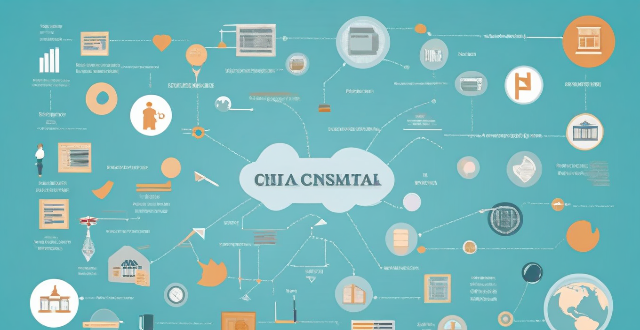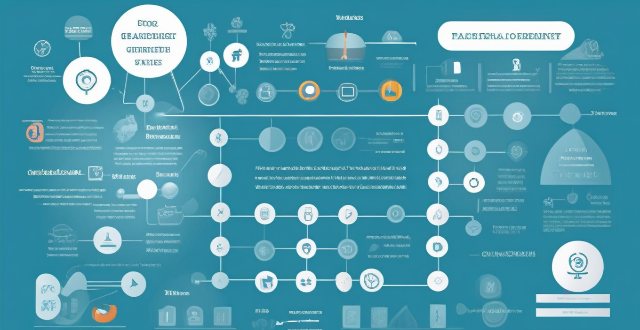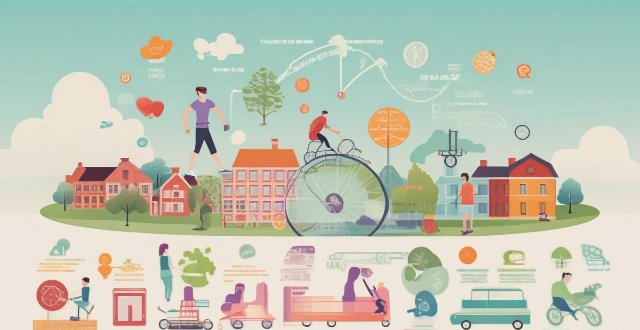Bank Organization

What is the role of international organizations in financial regulation ?
International organizations are crucial in financial regulation, promoting stability, cooperation, and coordination among countries. They set global standards, enhance coordination, provide policy advice, facilitate information exchange, and monitor market developments. The Basel Committee on Banking Supervision, International Organization of Securities Commissions, and International Association of Insurance Supervisors develop regulatory standards for banks, securities regulators, and insurance, respectively. The Financial Stability Board coordinates international financial regulation, while the Bank for International Settlements facilitates cooperation among central banks. The World Bank and IMF offer technical assistance and support for financial sector development and reform. The Committee on Payment and Settlement Systems promotes payment system stability, and the Joint Forum of Tax Administrations addresses tax evasion. The Global Financial Stability Report and Early Warning Exercises monitor market developments and emerging risks. Overall, these organizations help ensure financial stability, reduce systemic risks, and foster a more transparent and resilient global financial system.

Should I use a bank or a currency exchange service ?
When it comes to exchanging currencies, you have two main options: banks and currency exchange services. Both have their advantages and disadvantages, so it's important to consider your specific needs before making a decision. Advantages of Using a Bank: - Security: Banks are generally considered more secure than currency exchange services because they are regulated by government agencies. Your money is protected by insurance policies, such as the Federal Deposit Insurance Corporation (FDIC) in the United States. - Convenience: Many banks offer online and mobile banking services, allowing you to easily manage your account and make transactions from anywhere. You can also withdraw cash from ATMs worldwide without additional fees. - Fees: Banks typically charge lower fees for currency exchange compared to currency exchange services. Some banks even offer fee-free currency exchange if you have an account with them. Advantages of Using a Currency Exchange Service: - Better Exchange Rates: Currency exchange services often offer better exchange rates than banks because they specialize in foreign currency exchange. This means you can get more money for your currency than if you were to use a bank. - No Fees: Many currency exchange services do not charge any fees for exchanging currencies. However, some may still charge a small commission or service fee. - Speed: Currency exchange services are usually faster than banks when it comes to exchanging currencies. They often have shorter processing times and can provide you with the currency you need quickly. Disadvantages of Using a Bank: - Limited Availability: Not all banks offer foreign currency exchange services, especially smaller local banks. You may need to visit multiple banks to find one that offers this service. - Higher Fees: As mentioned earlier, banks typically charge higher fees for currency exchange compared to currency exchange services. This can add up quickly if you need to exchange large amounts of currency. Disadvantages of Using a Currency Exchange Service: - Security Risks: Currency exchange services are not regulated by government agencies like banks are. This means there is a higher risk of fraud or theft when using these services. - Limited Locations: Currency exchange services may not be available in all locations, especially in rural areas or smaller towns. You may need to travel to a larger city or airport to find one. - Limited Services: Currency exchange services typically only offer foreign currency exchange and do not provide other banking services like checking accounts or loans. If you need additional financial services, you will need to use a separate bank.

What is the role of the World Health Organization (WHO) in promoting global health ?
The World Health Organization (WHO) plays a crucialThe World Health Organization (WHO) plays a crucial by providing leadership, setting norm WHO's work is focused on improving health outcomes worldwide through various activities such as convening stakeholders, establishing international standards for health, generating scientific knowledge to inform policy decisions, providing technical support to countries, and monitoring global health trends.

How can businesses adopt and promote inclusive policies within their organization ?
Inclusive policies are essential for businesses to foster a diverse and inclusive workplace culture. To adopt and promote inclusive policies, organizations should conduct a diversity and inclusion audit, develop inclusive policies and practices, train employees on inclusivity, foster a culture of inclusivity, and evaluate and refine inclusive policies regularly.

What is the role of international organizations in promoting vaccine equity ?
This text discusses the role of international organizations in promoting vaccine equity by ensuring everyone has equal access to vaccines regardless of their socioeconomic status or geographic location. Key players such as the WHO, UNICEF, GAVI, World Bank, and WTO engage in various activities including advocacy, policy making, funding, research and development, logistics, distribution, monitoring, and evaluation. However, challenges such as political will, financial constraints, infrastructure deficits, and information disparities can hinder progress. The text concludes that overcoming these obstacles requires sustained collaboration and innovative solutions from these organizations and their partners worldwide.

How does credit management work in a bank ?
Credit management is a crucial function of banks that involves assessing and managing the risks associated with lending money to individuals and businesses. The process includes evaluating borrowers' creditworthiness, using credit scoring models to determine risk, making loan decisions, servicing and monitoring loans, and managing credit risk through diversification and risk management strategies.

Can I cancel a Cross-Border Payment transaction ?
Canceling a cross-border payment depends on factors like the payment method, bank policies, and timing of cancellation. Wire transfers and electronic platforms are common methods, with immediate requests having higher chances of success. Costs may apply for cancellation, and effective communication with banks or providers is crucial. Steps include acting quickly, verifying transaction status, contacting support, and understanding any fees. Prevention tips involve double-checking details and using reliable platforms.

What are the potential consequences of poor risk management practices ?
Risk management is a crucial component of any organization's strategy, and poor practices can lead to financial losses, legal issues, reputational damage, operational disruptions, and negative impacts on employee morale and productivity. It is essential for organizations to implement effective strategies to mitigate these potential consequences and ensure their long-term success and sustainability.

What role do international organizations play in promoting green finance globally ?
International organizations play a vital role in promoting green finance by setting standards, providing guidance, building capacity, conducting research, facilitating collaborations, and monitoring progress. Examples of such organizations include UNEP, IEA, World Bank Group, GGGI, PRI, CBI, and GCF.

How are nominees for acting awards determined ?
Nominees for acting awards are determined through a combination of critical acclaim, industry recognition, membership voting by award-giving organizations, and sometimes even campaigning and lobbying efforts. Eligibility criteria set by the organization must also be met before an actor can be considered for an award. Public opinion and popularity may also play a role in determining nominees.

What is the importance of sustainability in sports event organization ?
The importance of sustainability in sports event organization is multifaceted, addressing environmental, social, and economic considerations. By adopting sustainable practices, organizers can reduce the carbon footprint, conserve natural resources, engage with local communities, promote accessibility and inclusivity, ensure long-term profitability, achieve cost efficiency, enhance reputation, and support corporate social responsibility. These efforts contribute to a more equitable and thriving world for future generations.

How can I create a personalized gift without breaking the bank ?
The text provides guidance on creating personalized gifts without spending a lot of money. It suggests getting crafty by making handmade items, using what one already has to create sentimental gifts, thinking creatively about non-material presents, shopping sales and using coupons for purchased gifts, and collaborating with others for group gifts. The tips aim to help readers give meaningful presents while staying within budget.

How do I troubleshoot issues with Apple Pay ?
Troubleshooting issues with Apple Pay involves checking device compatibility, updating software, adding a new card, verifying bank support, and contacting Apple Support. Compatible devices include iPhone 8 or later, iPad Pro (all models), Apple Watch Series 1 or later, and Mac with Touch ID or T2 Security Chip. Updating software can be done through Settings > General > Software Update on iPhone or iPad, or System Preferences > Software Update on Mac. To add a new card, open the Wallet app, tap the plus sign, follow prompts, and call the bank if needed. Not all banks support Apple Pay, so check with your bank or visit Apple's website for a list of supported banks. If issues persist, contact Apple Support via phone, email, or chat on their website for further assistance.

What role do sponsors play in sports event organization ?
The role of sponsors in sports event organization is crucial. They provide financial support, resources, and expertise that help make events successful. Sponsors contribute to enhancing prize money for athletes, providing essential equipment and technology, offering marketing and branding expertise, creating brand awareness, enhancing event image, supporting local charities, and promoting healthy lifestyles. Their contributions ensure the success of the event while generating positive outcomes for both sponsors and the wider community.

What are the steps to a quick and lasting home organization ?
Achieving a quick and lasting home organization involves setting realistic goals, decluttering regularly, creating a system for everything, developing maintenance habits, embracing minimalism, involving everyone in the household, and reviewing and adjusting as needed. By following these steps, you can enhance your quality of life and make your living space more enjoyable.

Have any celebrities started their own environmental organizations or foundations ?
This text discusses the environmental organizations and foundations founded by celebrities such as Leonardo DiCaprio, Emma Watson, Prince Harry and Meghan Markle, and Jane Goodall. The organizations focus on various environmental causes, including protecting wildlife, combating climate change, promoting sustainability, and addressing social justice issues related to the environment.

What banks and credit card providers support Apple Pay ?
Apple Pay is a mobile payment and digital wallet service that works with Apple devices. It allows users to make secure purchases in person, in iOS apps, and on the web using Safari. Many banks and credit card providers support Apple Pay, including Bank of America, Capital One, Chase, Citi, Wells Fargo, American Express, Discover, MasterCard, and Visa. Adding your card to Apple Pay is a straightforward process involving opening the Wallet app, tapping the plus sign, and following the steps to add a new card. The availability of Apple Pay and the specific cards it supports may vary by country or region, so it's important to check with your bank or card issuer to confirm compatibility and get any necessary instructions.

What role do economic indicators play in policy making by central banks ?
Economic indicators play a crucial role in policy making by central banks. They provide valuable information about the state of the economy, which helps central banks make informed decisions about monetary policy. Economic indicators are used to measure economic performance, identify risks and challenges, guide monetary policy decisions, and communicate with markets. Central banks use these indicators to assess whether the economy is growing at a sustainable pace or if there are any imbalances that need to be addressed. They also help central banks identify potential risks and challenges facing the economy, such as a widening trade deficit or rising imports. Economic indicators guide monetary policy decisions by helping central banks determine whether to raise or lower interest rates based on inflation targets. Finally, economic indicators play an important role in communicating with markets by providing transparency and clarity about central bank policy decisions.

How do I pack my luggage to maximize organization and accessibility ?
Packing your luggage efficiently is key for a stress-free travel experience. Here are some tips on how to maximize organization and accessibility when packing your bags: 1. Choose the right luggage based on your trip type. 2. Use packing aids like cubes, compression sacks, and shoe bags to keep items tidy. 3. Roll clothes instead of folding them to save space and reduce wrinkles. 4. Fill dead space with small items like socks or electronic accessories. 5. Keep essentials in a separate bag for easy access during transit. 6. Follow the 'One Week Rule' to prevent overpacking. 7. Organize outfits together for quick grabbing. 8. Place heavy items at the bottom for balance. 9. Store liquids in a waterproof pouch. 10. Do a final check before leaving to ensure nothing is forgotten.

How can I apply minimalist principles for quick and effective home organization ?
Minimalism is about intentional living and promoting clarity, calmness, and efficiency in your home. To apply minimalist principles for quick and effective organization, start by identifying your priorities through listing necessities and assessing functionality. Simplify your space by removing unnecessary items and creating open areas. Categorize and contain items by grouping them together and using clear labeling for easy accessibility. Streamline routines with daily maintenance and simplifying tasks through automation or batch processing. Regularly evaluate and adjust your organizational systems as needs change, embracing quality over quantity and mindful acquisition. Achieving an organized home reflects a purposeful lifestyle supporting well-being and function.

How do I use the KonMari method for quick organization ?
The KonMari Method, a popular decluttering and organizing technique developed by Marie Kondo, focuses on sparking joy in life by keeping only items that bring happiness. To use the KonMari Method for quick organization, follow these steps: commit to tidying up, imagine your ideal lifestyle, finish discarding first by sorting items into categories and asking if they spark joy, tidy by category not location, follow the right order of categories (clothing, books, papers, komono or miscellaneous items, and sentimental items), use the right techniques such as folding clothes and vertical filing, and maintain your space by regularly decluttering, putting things back where they belong, and appreciating your efforts. Consistency and commitment are key to success.

How has the COVID-19 pandemic affected the financial markets ?
The COVID-19 pandemic caused significant disruptions in financial markets, including increased volatility, sector-specific impacts, and central bank interventions. Stock markets experienced sharp declines initially, with travel and retail sectors hit hard, while healthcare and technology sectors generally fared well. Central banks cut interest rates and injected liquidity to stabilize markets. Bond markets saw increased activity, and oil prices experienced dramatic swings. Investor behavior shifted towards defensive investing, and economic indicators showed negative trends. The long-term implications of these changes are still unfolding but are likely to shape the financial landscape for years to come.

What are some of the most successful celebrity-led charity organizations ?
There are several successful celebrity-led charity organizations that have made a significant impact on society. Here are some of them: 1. The Elton John AIDS Foundation is a non-profit organization founded by Sir Elton John in 1992 to raise awareness and fund research for HIV/AIDS prevention, treatment, and education. 2. The Robin Hood Foundation is a New York City-based non-profit organization founded by billionaire businessman Paul Tudor Jones II in 1988. 3. The Ryan Seacrest Foundation is a nationally recognized nonprofit organization founded by television personality Ryan Seacrest in 2010. 4. The Leonardo DiCaprio Foundation is an environmental conservation organization founded by actor Leonardo DiCaprio in 1998. 5. The George Clooney Foundation for Justice is a human rights organization founded by actor George Clooney in 2016.

Where can I enjoy haute cuisine in Hong Kong without breaking the bank ?
Hong Kong is a food lover's paradise, offering a wide range of culinary delights at various price points. Here are some budget-friendly options for enjoying haute cuisine in the city: 1. **Tim Ho Wan** - The World's Cheapest Michelin-starred Restaurant offers dim sum dishes like Baked Buns with BBQ Pork for HK$20-50 per dish. 2. **Yung Kee Restaurant** - Affordable Roast Goose is renowned for its crispy and juicy roast goose, with meals costing HK$100-200. 3. **Tai Ping Koon** - Budget-Friendly Seafood Restaurant serves fresh seafood dishes like steamed fish and shrimp with garlic for HK$50-100 per dish. 4. **Lan Fong Yuen** - No-frills Tea House with Reasonable Prices offers traditional Cantonese tea and snacks since 1956, with prices ranging from HK$20-40 per person. 5. **Kau Kee Restaurant** - Affordable Noodles and Congee is known for its beef brisket noodles and congee, with meals costing HK$30-50. 6. **Lin Heung Kuttay** - Cheap and Cheerful Desserts specializes in traditional Chinese desserts like mango pomelo sago soup and durian pudding, with prices ranging from HK$10-30 per dessert. These options prove that you don't have to spend a fortune to enjoy delicious food in Hong Kong.

Who are the main financial regulators in the world ?
Financial regulators worldwide play a pivotal role in maintaining the stability and integrity of the global financial system. Key institutions include the SEC, Fed, CFTC, and FINRA in the US; ECB and ESMA in the EU; BoE and FCA in the UK; BoJ and FSA in Japan; and PBOC and CBIRC in China. The Basel Committee on Banking Supervision and IOSCO also set global standards for bank regulation and securities markets, respectively. These regulators collaborate to address cross-border issues and enhance the health and integrity of the global financial system through implementing regulations, monitoring market activities, promoting transparency, and taking action against illegal or unethical practices.

How can I organize a sports event to benefit a charity organization ?
Organizing a sports event to benefit a charity organization involves several key steps, from planning and preparation to post-event follow-up. Here's a detailed outline of how to go about it: ### Planning and Preparation 1. **Choose the Right Sport:** Select a sport that will attract participants and spectators likely to support your chosen charity. Ensure the sport is accessible to people of all ages and skill levels. 2. **Set Clear Objectives:** Define how the event will benefit the charity and set fundraising goals. 3. **Select an Appropriate Venue:** Find a venue that can accommodate the expected number of participants and spectators, ensuring it has adequate facilities like restrooms and parking. ### Promotion and Marketing 1. **Create a Marketing Plan:** Outline how you will promote the event to maximize participation and awareness for the charity. Use multiple channels such as social media, local advertising, and word-of-mouth. 2. **Partner with Local Businesses:** Seek sponsorships from local businesses in exchange for promotion during the event. Offer sponsors perks like logo placement or exclusive advertising rights. 3. **Leverage Social Media:** Create dedicated social media pages for the event to keep participants and supporters updated. Engage with your online community by sharing updates, answering questions, and encouraging participation. ### Registration and Participation 1. **Simplify the Registration Process:** Offer easy online registration using platforms like Eventbrite or Active.com. Provide clear information about the event, including dates, times, fees, and registration deadlines. 2. **Offer Incentives for Participation:** Introduce rewards or recognition programs for participants who meet certain fundraising milestones. Publicly acknowledge top contributors through awards or special mentions. ### Event Day Logistics 1. **Coordinate Volunteers:** Gather a group of volunteers to help with tasks like setup, registration, and cleanup. Assign roles to ensure smooth operation on the day of the event. 2. **Manage Facilities and Supplies:** Make sure all necessary sports equipment is available and properly maintained. Arrange refreshments like water, snacks, and possibly post-event meals for participants and volunteers. 3. **Maintain Safety Standards:** Have first aid kits available and establish emergency protocols. Consider hiring medical staff or security personnel depending on the size and nature of the event. ### Post-Event Follow-Up 1. **Thank Participants and Sponsors:** Show appreciation through thank-you notes or emails to everyone involved. Share success stories publicly to highlight the impact of the event on the charity and its beneficiaries. 2. **Evaluate the Event's Success:** Solicit opinions from participants, volunteers, and sponsors to understand what worked well and what could be improved. Analyze financial results to see if fundraising goals were met and identify areas for future growth. By following these steps, you can successfully organize a sports event that not only engages the community but also makes a significant contribution to your chosen charity organization.

How can mind maps be used to enhance note-taking and organization ?
Mind maps are an effective tool for organizing information, enhancing memory recall, and improving note-taking. They offer a visual representation of complex ideas, making it easier to understand and remember them. Mind maps can be used in various ways, such as organizing information, enhancing memory recall, and improving note-taking. They utilize visual associations, hierarchical structures, and flexibility to aid in understanding, remembering, and applying complex information in different contexts. Examples of using mind maps include studying, project planning, brainstorming, and taking meeting notes.

What are the most common types of telecommunications fraud ?
Telecommunications fraud is a serious issue that affects millions of people worldwide. It involves using technology to deceive individuals or organizations for financial gain. Here are some of the most common types of telecommunications fraud: 1. Phishing Attacks: In this type of attack, cybercriminals send fraudulent emails or messages that appear to be from a legitimate source, such as a bank or a government agency. The message typically asks the recipient to click on a link or provide sensitive information, such as login credentials or credit card details. Once the victim provides the requested information, the attacker can use it to access their accounts and steal money or personal data. 2. Vishing Attacks: In this type of attack, cybercriminals use automated phone calls or live callers to trick victims into providing sensitive information over the phone. The attacker may pretend to be from a legitimate organization, such as a bank or a government agency, and ask for personal information or payment for a fake service. 3. Smishing Attacks: Smishing, or SMS phishing, is a relatively new form of telecommunications fraud that involves sending fraudulent text messages to victims' mobile devices. These messages often claim to be from a legitimate source, such as a bank or a government agency, and ask for sensitive information or payment for a fake service. Unlike traditional phishing attacks, which rely on email, smishing attacks use SMS messages to reach victims directly on their mobile devices.

How can small businesses implement automation without breaking the bank ?
In summary, small businesses can effectively integrate automation into their operations by starting small, utilizing affordable tools, simplifying processes beforehand, implementing gradually, outsourcing when needed, and monitoring performance to make necessary adjustments. These strategies help in achieving efficiency gains without excessive costs, allowing for continuous improvement and growth.